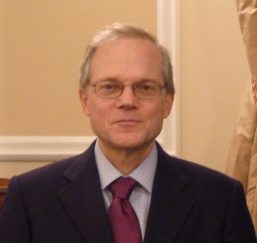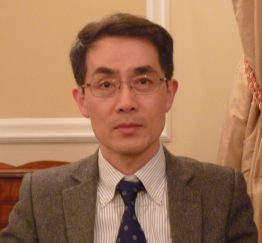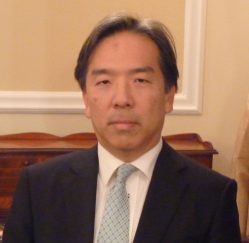
North Korean performers form an atomic symbol during the Arirang festival, Pyongyang, September 2009. (AP photo)
SeminarTuesday 9 December 2014
6:00pm – 7:00pm
Dealing with North Korea
Drinks reception: 7:00pm – 8:00pm
13/14 Cornwall Terrace (Outer Circle), London NW1 4QP
Organised by The Daiwa Anglo-Japanese Foundation
North Korea is arguably the world’s most troublesome country. It is expanding both its plutonium and enriched uranium paths to a nuclear weapon and, according to the senior US military commander in South Korea, can probably mount a nuclear weapon on Nodong missiles that can reach Japan. Development of a road-mobile, intercontinental missile may enable it one day also to target the United States. North Korea is also presumed to have the world’s only active chemical weapons programme. Meanwhile, its deplorable human rights situation is without parallel.
Much remains mysterious about this belligerent nation. Young leader Kim Jong Un talks of economic development, yet he wastes scarce resources on vanity projects like a ski slope. The unexpected execution of his uncle a year ago showed Kim to be more akin to Stalin than to Gorbachev.
Kim’s absence from public view for 40 days this autumn prompted discussion about who is really in charge, especially when three senior officials suddenly appeared in Incheon for the Asian Games. They sought talks with the South, but did not follow up on the scheduled dialogue. Nor has Pyongyang taken any steps that would enable resumption of the long-stalled Six Party Talks. What is hindering the process and what is the underlying historical context of the Talks?
North Korea has undertaken diplomatic initiatives in other ways, however, including by engaging in talks with Japan over the abduction issue. Our speakers discussed what to make of all of this and what concerned countries ought to do.
You can view the recording of the seminar here:
About the contributors

Mark Fitzpatrick
Mark Fitzpatrick is Director of the Non-Proliferation and Disarmament Programme at the International Institute for Strategic Studies (IISS) in London. His programme focuses on nuclear and missile challenges posed by Iran, North Korea and other outlier states, and on nuclear security and nuclear disarmament issues. He is the editor of North Korean Security Challenges (July 2011). He joined the IISS in October 2005 after a 26-year career in the US Department of State, including as Deputy Assistant Secretary for Non-Proliferation (acting). He earned a Master’s degree in Public Policy from the Kennedy School of Government at Harvard University, and has studied at the Japanese National Institute of Defence, where his dissertation on Korean unification was published in journals in Japan and South Korea.

Dr Seung-young Kim
Dr Seung-young Kimis Korea Foundation Senior Lecturer in the School of East Asian Studies at the University of Sheffield, where he teaches and researches the international history of Korea and East Asia during the twentieth century. After graduating from Seoul National University, he received his MA from Columbia University and PhD from the Fletcher School of Law and Diplomacy of Tufts University in the United States. He also had research fellowships at Keio University and the University of Tokyo for three years, and has a focused research interest in Japanese diplomatic history. He has published American Diplomacy and Strategy toward Korea and Northeast Asia, 1882-1950 and After (Palgrave Macmillan, 2009), and is preparing a second book on diplomatic practices in Northeast Asia during the 20th century.

Minister Yo Osumi
Minister Yo Osumi is Political Minister at the Embassy of Japan in the UK. He was born in Osaka and educated at Tokyo University (BA in Economics) and Columbia University (MA in International Affairs). Minister Osumi has worked on, among other things, the US-Japan Security Treaty. From 2005 to 2009, he served at Paris-based International Energy Agency (IEA), where he was in charge of IEA’s external relations with countries and regions such as China, India and Southeast Asia.